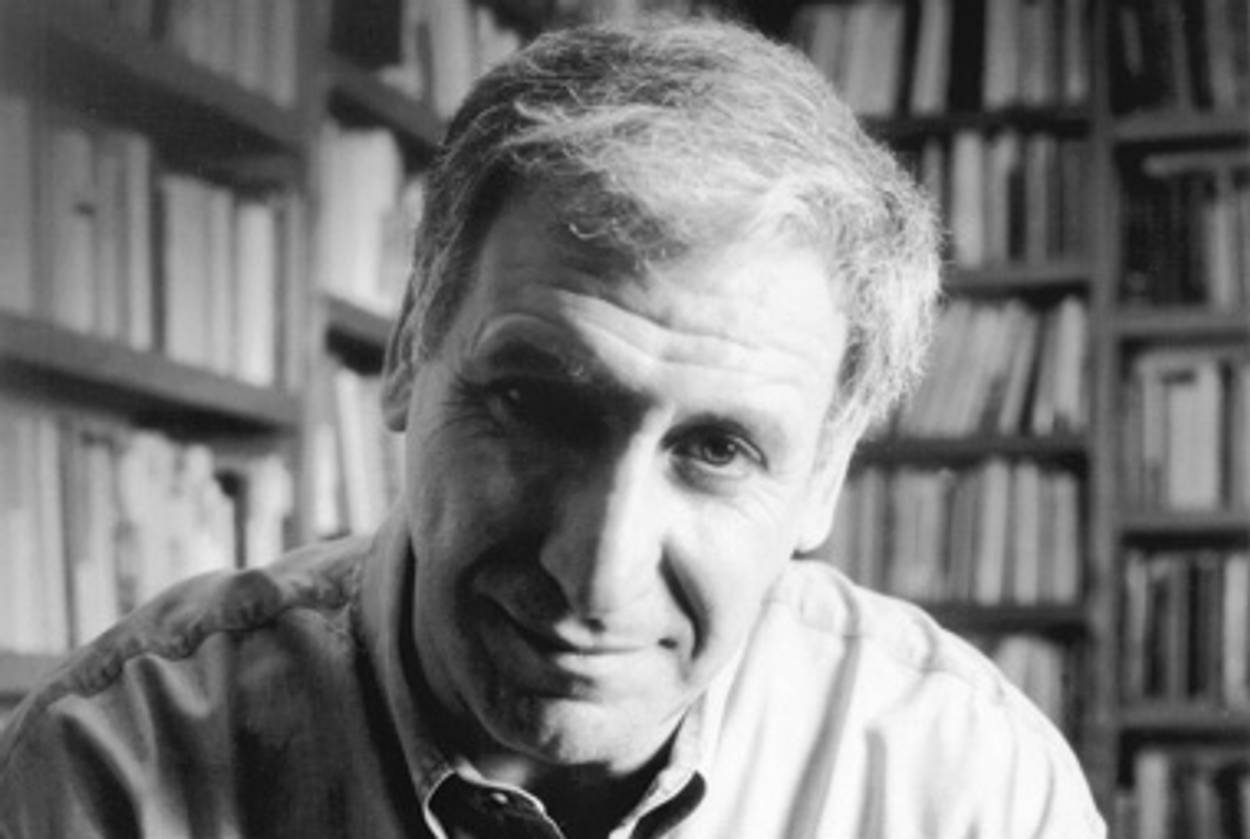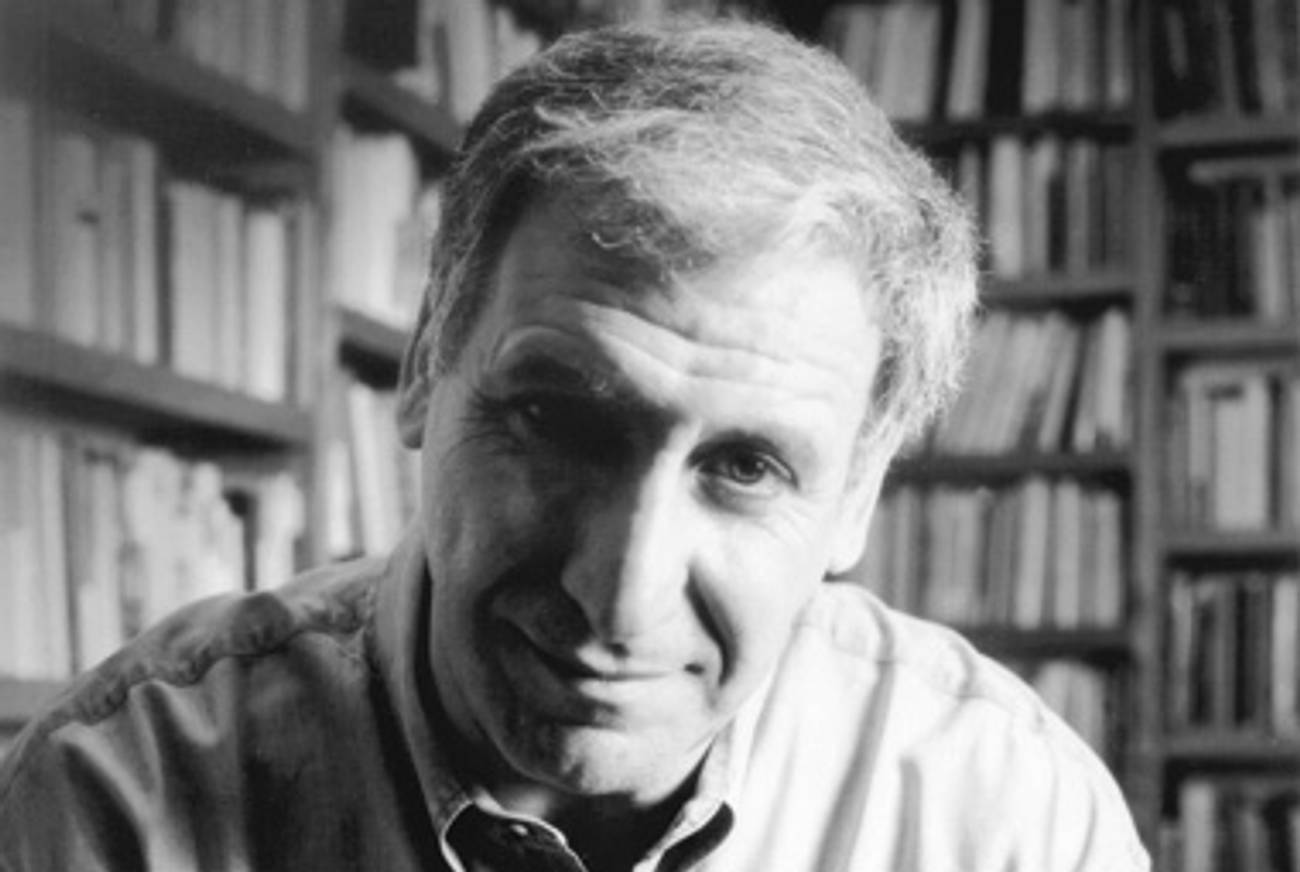The Earthly Dreamer
Poet Edward Hirsch and the dignity of everyday existence




As his The Living Fire: New and Selected Poems shows, the award-winning poet Edward Hirsch is traditional in a recognizably American way. He likes established verse forms (the book contains a lot of sonnets and a surprising number of sestinas) without making a big deal of them. He wears his considerable erudition lightly. His poems are allusive without being elusive, and his diction remains close to everyday speech while containing fine turns of phrase. Hirsch also tackles long-established themes: memories and loss as well as memories of loss; the discrepancies between body and soul, emotion and reason, the carnal and the spiritual. He lives in the cities of man (specifically Chicago and New York, not to mention Houston, Edinburgh, Helsinki, and Krakow) and dreams of the city of God.
Of course, it is odd to speak of the city of God—the title of St. Augustine’s most influential book—in relation to a Jewish poet, but Hirsch has an affection for Christian mystics, like Dionysus the Areopagite and the French philosopher Simone Weil, who features in two poems and plays a supporting role in a third. In “Away from Dogma,” Hirsch admires her subtlety and her determination: “[B]etween the word forsaken and the word joy/God came down and possessed her.”
Hirsch does not seem to a have a mystical bone in his body, nor is he given to belief, as he writes in what amounts to a strenuously self-critical autobiographical poem, “A Partial History of My Stupidity” :
Forgive me, faith, for never having any.
I did not believe in God,
who eluded me.
Hirsch has sought and God has escaped him or escaped from him. That said, Hirsch identifies strongly with Jews and Judaism, as he shows in his elegies for friends and family as well as in a beautiful, because singularly unmelodramatic, account of the children of Terezin.
Even in those elegies, though, we can hear his complicated relationship to the God of his forebears. He states this clearly in “Yahrzeit Candle”:
[And] turning back to each other in light
of our fresh role as keepers of the dead,
initiates of sorrow, inheritor of prayers,
Lord, which we recite but cannot believe,
grown children swaying to archaic music
and cupping our losses, our bowl of flame.
Here Hirsch is doing what he does best. He turns verbal precision and syntactical complication into a knot of connotation. The light is both literal (the candle) and abstract (“in light of”). The poet and the person he addresses are initiates (a good religious—though not Jewish—term) in mourning, but Hirsch’s strange grammar turns God into the true inheritor of prayer. The benedictions therefore benefit him, even if they are spoken without faith. So, they stand there, the continually bereaved children of dead parents, repeating words that should be empty but that serve to contain and re-inaugurate their loss. They transform a simple candle in an equally simple glass into an eternal light and something of a ritual sacrifice.
So, the Kaddish serves as a model of prayer, but only just. In an extended meditation on 17th-century Dutch painting, Hirsch proposes something less direct but more heartfelt:
If painting is to be a form of prayer
(prayer which Weil called “unmixed attention”
and George Herbert “something understood,”
one form among a myriad of forms),
then the Dutch artists prayed obliquely
by turning away from the other world
and detailing the plenitude of this.
That plenitude expresses itself as the physical exuberance of the familiar, “the daily pleasures and sufferings/of usual people, the Saturday nights/and Sunday mornings of human life.” These oblique examples of prayer lead us back to the dignity of our everyday existence:
Because this world, too, needs our unmixed
Attention, because it is not heaven
but earth that needs us, because
it is only earth—limited, sensuous
earth that is so fleeting, so real.
It is precisely the ephemeral that requires our care, the momentary that is “so real.”
As a result, Hirsch is left in the cities of men and women. Not surprisingly, the majority of his poems are about love, and plenty of those are straight-out love poems. An old subject, but for him, love signals the sheer wonder of survival:
And as I turn home where
I know you are already awake,
Wandering slowly through the house
Searching for me, I can suddenly
Hear my own footsteps crunching
The simple astonishing news
That we are here,
Yes, we are still here.
Astonishing? Perhaps, in its own quiet way. But it is news that bears repeating every day.
Without mystical awareness or a daily regimen of religious observance, Hirsh is left with what he has called “wild gratitude.” Yet Hirsch is not a poet of wildness nor do all his poems give voice to thanks. Quite frequently, he expresses regret or a pained nostalgia for missed chances and unfulfilled possibilities:
The times my sad heart knew a little sweetness
come back to me now: the coffee shop
in Decatur, the waffle house in Macon…
Hirsch is standing on the brink of sentimentality—is his heart really so sad?—and sentimentality is the danger that retrospect constantly faces. Like love and passion, the past demands our discretion.
Usually Hirsch is discreet about his history without being coy. He is also discreet in other ways. He often writes about sex with gusto but without specifics, and his commitment to desire allows him to launch his most energetic heresy:
I think the whole shebang—the serpent, the apple
with knowledge of good and evil—was a setup
because God couldn’t stand being alone
with His own creation, while Adam and Eve celebrated
as a man and a woman together in Paradise,
exactly like us, love, exactly like us.
It is better to live in company than to be divine.
Hirsch prefers the Saturday nights and Sunday mornings of love to the blasts of sublimity because he presents himself as an essentially lonely man. He is an insomniac walking alone at dawn or a visitor standing by a window at night. He is there and somewhere else in a constant state of reflection.
Hirsch gazes out or he looks back. In this too he is traditional in an American way—not for nothing does he write about Edward Hopper. Like Hopper, there is a constant strain of melancholy in Hirsch’s work, a dying fall. And like Hopper, he is never apocalyptic. Hirsch doesn’t write poems with grand slam endings. He probably couldn’t. His love of the small links that bind him to the world would surely never allow it.
David Kaufmann teaches literature at George Mason University.
David Kaufmann teaches literature at George Mason University.